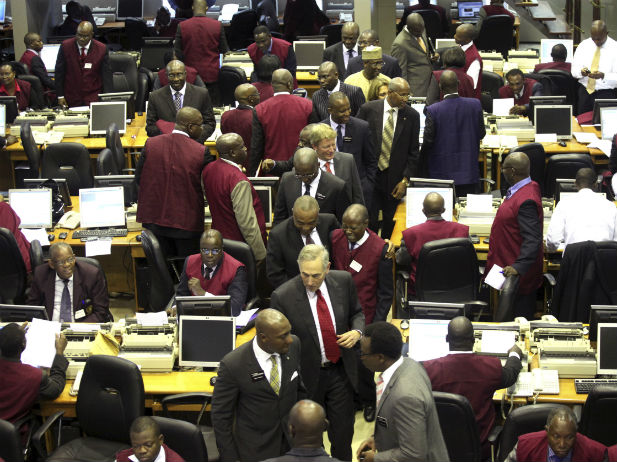The Nigerian stock market (equity category) depreciated by N438bn between August 24, 2015 and August 24 this year.
The Nigerian Stock Exchange All-Share Index also slid from 29,214.13 basis points to 27,880.46 basis points within the same period.
Data compiled by our correspondent also showed that the volume of transactions, value of transactions and number of deals for 2015 were 257.73 million, N2.775bn and 4,247, respectively; while those for 2016 were 230.29 million, N2.955bn and 3,002, respectively.
Between January and March this year, the equities market depreciated by 10.79 per cent – as of the first day of trading this year (January 4), the NSE market capitalisation stood at N9.757tn, while the ASI was 28,370.32 basis points.
But on the last day of trading in March, the market capitalisation and the ASI crashed to N8.704tn and 25,306.22 basis points, respectively.
Equity investors had in the first seven trading days of the year lost N804bn of their investment value.
A few weeks into the year, the downward trend in the Nigerian stock market prevailed with 10 out of the 12 indices of the NSE turning out negative.
The market capitalisation of the NSE fell by N811bn in the first 10 weeks of the year.
Market capitalisation is the total market value of the shares outstanding of all traded companies on the floor of the Exchange.
It dropped from N9.75tn on January 4, 2016 to N8.939tn 10 weeks into the year, while the ASI also closed at 25,988.40 basis points in the same period from the 28,643.67 basis points recorded on the first trading day of the year.
Meanwhile, as the ongoing economic recession continues to affect the financial market with dire consequences on the income streams of the capital market operators, stockbrokers have set agenda on their options to remain in the business.
Stockbrokers have consistently expressed deep concern that the current operating environment characterised by high interest rate, weak purchasing power, poor corporate earnings, unstable exchange rate, high inflation rate and investor apathy, among others, is fast eroding their dwindling income, fueling speculation that many of them may be pushed completely out of business .
The Managing Director and Chief Executive Officer, Standard Union Securities, Mr. Sehinde Adenagbe, said it would be difficult for stockbrokers to break even under the current climate.
“Overhead cost is rising steadily yet workers are clamouring for higher pay to cope with the high cost of living. Office rent, epileptic power supply and transport costs are of great concern to us and there are other contending issues that are eating into the income of stockbrokers,” he said.
Speaking on the survival strategy, the President and Chairman of Governing Council, Chartered Institute of Stockbrokers, Mr. Oluwaseyi Abe, advocated personal development on the part of the stockbrokers in order to expand their income streams.
“Recession is a time to take a breath. Invest on knowledge this time and be moderate. Stockbrokers should be multitasking to be relevant on all platforms and Exchanges,” he said.
In the same vein, the Registrar and Chief Executive Officer, CIS, Mr. Adedeji Ajadi, advised stockbrokers to be more creative and ready for diversification in order to remain in business, adding, “This is not the time to limit business opportunities to trading listed securities. What about bonds, unlisted equities and foreign exchange?
“Stockbrokers are also investment advisers. This is the right time to work with governments at various levels as consultants and advisers on how to create alternative sources of revenue, and better manage scarce resources to ride through the challenges of the economy at this time.”
The Managing Director and Chief Executive Officer, Network Capital Limited, Mr. Oluropo Dada, stressed the need for stockbrokers to leverage their wide professional latitude to peep into money market instruments by way of portfolio switching in favour of money market instruments such as Treasury bills


 Forex3 weeks ago
Forex3 weeks ago


 Naira2 weeks ago
Naira2 weeks ago
 Billionaire Watch2 weeks ago
Billionaire Watch2 weeks ago




 Naira2 weeks ago
Naira2 weeks ago




 Naira2 weeks ago
Naira2 weeks ago




 Naira1 week ago
Naira1 week ago




 Naira3 weeks ago
Naira3 weeks ago




 Naira4 weeks ago
Naira4 weeks ago





















